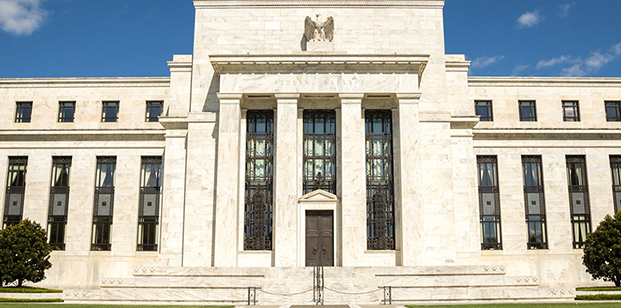Investors have been worrying about ‘irrational exuberance’ in stock markets, but are bond markets even worse?
- Corporate bond spreads are at their lowest level since 1998
- S&P reports significant inflows into corporate bond funds
- Emerging market bond spreads are also at historic lows
US corporate bond spreads over government bonds have hit lows not seen since 1998. While everyone is worrying about complacency in the stock market, it seems fixed income markets may be facing a similar phenomenon. Should bond investors be worried?
The ICE BofA US Corporate Index Option-Adjusted Spread, which measures the aggregate spreads on US corporate bonds, hit 0.75% this week. These are levels not seen since June 1998. In common with other risk markets, spreads had widened out in the wake of Liberation Day, only to – seemingly – overshoot in the other direction. European corporate bond markets have experienced a similar phenomenon.
This comes at a time when there are plenty of risks in the global economy. No-one yet knows the impact of tariffs on US inflation or economic growth. Geopolitics is a mess. Default rates have come down since the start of the year, but are not at particularly low levels. This is not the backdrop for significant bullishness.
There are other signs of exuberance in the market. S&P Global reports that July 2025 saw significant inflows into European-based corporate bond exchange-traded funds (ETFs). It said: “Across the top ten ETF flows, Corporate Bond funds attracted over $1.5 billion in new investments alone, marking a decisive pivot towards fixed income as investors reassess their portfolios in light of shifting market dynamics.”
It's not just corporate credit. The Financial Times reported this week that emerging market companies were flooding debt markets with new issuance as spreads hit 20-year lows. It said that overall yields were still above 6%, but this was largely as a result of rising US Treasury yields. The spread had narrowed to less than 2 percentage points.
Adam Darling, fixed income fund manager at Jupiter says the assumption that ‘Trump Will Always Chicken Out’ has brought some complacency into market thinking. He believes spreads are too tight in some parts of the corporate bond market relative to the macroeconomic environment. “We view credit spread as the compensation for taking risks and where we are getting appropriately compensated, we are taking risk. Where the market is too expensive, we are happy to be patient and prudent and wait for better opportunities.”
He says there are still areas where sentiment is more negative. They’ve been interested in energy, for example, where market pricing is too bearish in his view. He says Europe continues to be interesting, with economic conditions improving, with investors too bullish on the US, where economic conditions are deteriorating.
Nevertheless, it is a diminishing opportunity set for fixed income managers and investors need to tread carefully. While all-in yields are relatively appealing, the risks are still finely balanced and many areas are priced for perfection.









